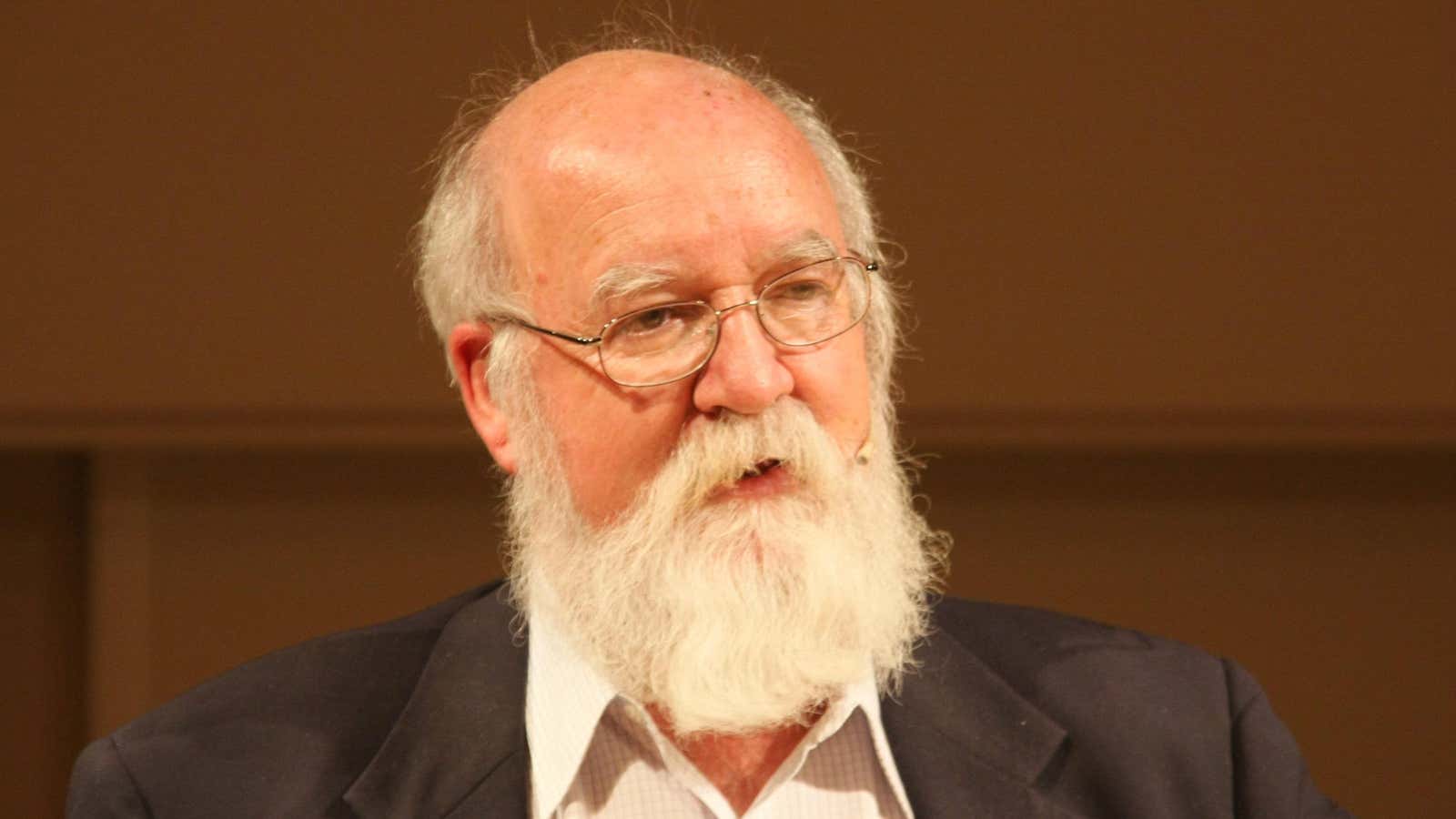Daniel Dennett’s philosophical achievements cannot be neatly summarized. To some, he’s familiar as one of the four horsemen of new atheism, alongside Christopher Hitchens, Richard Dawkins and Sam Harris. He’s known for his focus on Darwinism, and applying the evolutionary theory to ideas and cultural development. And he’s one of the greatest living philosophers of the mind, arguing that consciousness requires no magic other than the physical mechanics of the brain, that similarly complex robots would be equally conscious, and that the “self,” or ego, does not exist.
But Dennett, who spoke at this year’s Association of the Scientific Study of Consciousness conference in Buenos Aires, is unimpressed with many of his contemporaries in philosophy.
“A great deal of philosophy doesn’t really deserve much of a place of the world,” he says. “Philosophy in some quarters has become self-indulgent, clever play in a vacuum that’s not dealing of problems of any intrinsic interest.”
Much if not all philosophical work in analytic metaphysics, for example, is “willfully cut off from any serious issues,” says Dennett. The problem, he explains, is that clever students looking to show off their skills “concoct cute counterarguments that require neither technical training nor empirical knowledge.” These then build off each other and invade the journals, and philosophical discourse.
This “cottage industry” certainly isn’t helped by the pressure on young philosophy students to publish papers.
“It can take years of hard work to develop the combination of scholarly mastery and technical acumen to work on big, important issues with a long history of philosophical attention,” says Dennett. “In the meantime, young philosophers are under great pressure to publish, so they find toy topics that they can knock off a clever comment/rebuttal/revival of.”
As a consequence, Dennett says much of philosophy is little more than a “luxury decoration on society,” and he complains many of the questions studied in both analytic and continental philosophy are “idle—just games.” For philosophers to be of real use, they should engage with the world, he says—as he does alongside those in interdisciplinary fields, such as philosophy of biology, philosophy of mathematics, or ethics.
